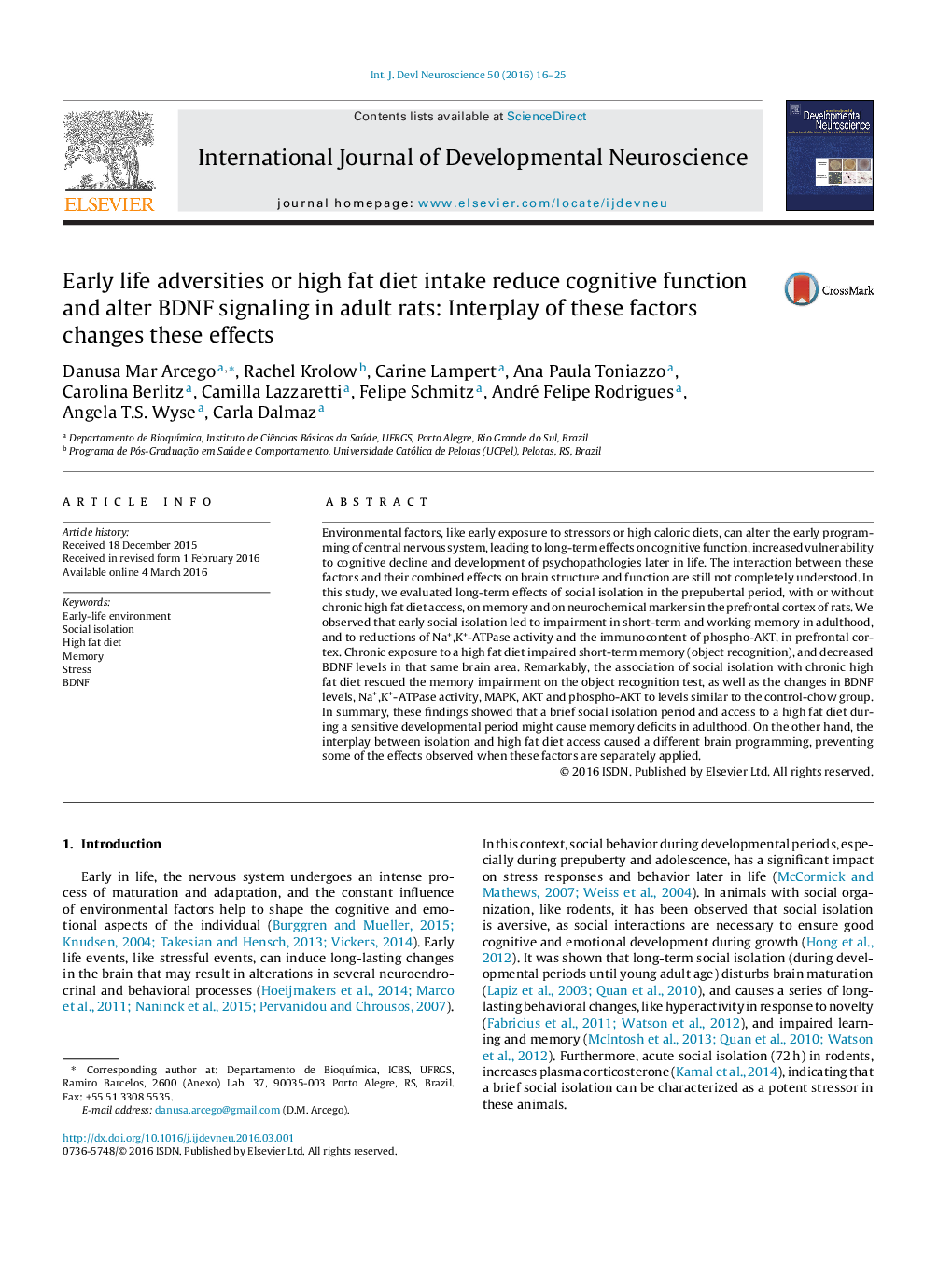| کد مقاله | کد نشریه | سال انتشار | مقاله انگلیسی | نسخه تمام متن |
|---|---|---|---|---|
| 2785593 | 1568380 | 2016 | 10 صفحه PDF | دانلود رایگان |

• Stress and high fat diet (HFD) early in life reduced cognitive function in adult rats.
• Chronic HFD reduced BDNF levels in rat prefrontal cortex (PFC).
• Early-life stress decreased Na+K+-ATPase activity in PFC in adulthood.
• The interplay between stress and diet rescued BDNF signaling and Na+K+ATPase activity.
Environmental factors, like early exposure to stressors or high caloric diets, can alter the early programming of central nervous system, leading to long-term effects on cognitive function, increased vulnerability to cognitive decline and development of psychopathologies later in life. The interaction between these factors and their combined effects on brain structure and function are still not completely understood. In this study, we evaluated long-term effects of social isolation in the prepubertal period, with or without chronic high fat diet access, on memory and on neurochemical markers in the prefrontal cortex of rats. We observed that early social isolation led to impairment in short-term and working memory in adulthood, and to reductions of Na+,K+-ATPase activity and the immunocontent of phospho-AKT, in prefrontal cortex. Chronic exposure to a high fat diet impaired short-term memory (object recognition), and decreased BDNF levels in that same brain area. Remarkably, the association of social isolation with chronic high fat diet rescued the memory impairment on the object recognition test, as well as the changes in BDNF levels, Na+,K+-ATPase activity, MAPK, AKT and phospho-AKT to levels similar to the control-chow group. In summary, these findings showed that a brief social isolation period and access to a high fat diet during a sensitive developmental period might cause memory deficits in adulthood. On the other hand, the interplay between isolation and high fat diet access caused a different brain programming, preventing some of the effects observed when these factors are separately applied.
Journal: International Journal of Developmental Neuroscience - Volume 50, May 2016, Pages 16–25